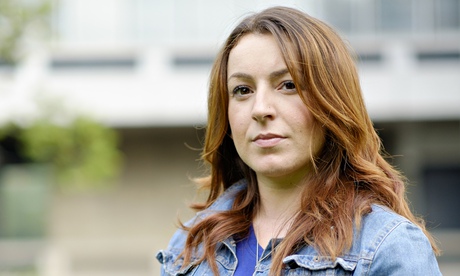
More than 800 NHS doctors, nurses and paramedics have signed up to work in Sierra Leone as the spread of Ebola continues to outpace efforts to contain the virus.
But medical charities operating in west Africa warn that “hysteria” whipped up about a potential outbreak in Europe or the US could compromise efforts to attract thousands more volunteers that are needed.
Sean Casey, head of International Medical Corps’s Ebola emergency response team in Liberia, said: “There’s some serious fear and paranoia around that’s not based on facts, and they haven’t anything to worry about. If someone doesn’t have symptoms you can’t give someone Ebola.”
After an exhausting two-month trip in Sierra Leone and Liberia, returning to London has been a shock for Casey. Within hours of touching down, one of his colleagues, a Spanish nurse returning from Liberia has just been told by her friends she is no longer welcome in their flat.
“If people feel like they are going to be a pariah they are not going to volunteer. These people who volunteer should feel like heroes. They have risked everything,” Casey said. “But if people are worried that when they come home they are going to be looked down upon and shunned by their families and friends, this could really compromise the response.”
US-born Casey said that compared to volunteer numbers after last year’s earthquake in the Philippines “we have seen a slow trickle at best”.
“These cases in the US and Spain have been isolated. Ebola is not going to knock down these countries, but if it gets into places like Senegal, Burkina Faso, Ivory Coast, especially in this paranoid environment it will be a catastrophe on an unimaginable scale,” he said.
With the US and the UK committed to building more than 20 new Ebola treatment units in Sierra Leone and Liberia, pressure on recruitment is growing. The Department for International Development (DfID) is scheduled to open its 100-bed hospital outside the Sierra Leone capital Freetown on 27 October, and there are plans to build four more Ebola treatment hospitals in Sierra Leone, taking capacity up to 700-beds over the coming months. These five facilities alone will require up to 2,000 international staff, DfID told the Guardian.
The first NHS volunteers are expected to arrive around November or December but over time will be absorbed by other agencies on the ground. They will be seconded for up to two months with their salaries paid by DfID.
Tony Redmond of emergency charity UK Med, which is managing the NHS recruitment, appealed for more workers qualified in nursing, general medicine, infectious specialists and paramedics to come forward. But he says the response so far has been heartening given the dangers.
“It’s been phenomenal, it’s very moving. Dame Sally Davies, [chief medical officer for England] was at one of our events for volunteers this week and it was clear she was very moved by the people coming forward,” Redmond said.
While there remains clearly a risk of staff catching Ebola, “healthcare professionals are trained at managing risk, respect their colleagues and are most comfortable following protocols and they trust themselves and their colleagues to do that”.
London-based intensive-care nurse Margarita Toumasou, who responded to a separate volunteer appeal by Avaaz, the online campaign, said: “There are risks every day with our job with HIV, with hepatitis. They need people to deliver the therapeutic care. They are not getting the numbers they need and we are trained to cope with risk.”
The campaign to attract volunteers has its own problems however, including a bottleneck in training. So far only 130 out of the 800 volunteers have been vetted for suitability, and 120 of those have been approved. They will then still need two weeks of training in the UK followed by more “live” training in Sierra Leone.
“The cold training in the classroom is manageable, but the hot-training can only be done in treatment centres. People have to buddy up – doctors with doctors and nurses with nurses and do the rounds. This all takes time,” said Casey, warning that more resources are urgently needed on this front.
